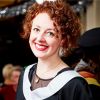
Sacha Crowther
- Course: MA English Literature
Please tell us a bit about yourself and your background.
Originally from North London. After I studied English Language and Literature at undergraduate level at Leeds, I took a year to travel around South America before undertaking my MA in English Literature, wherein I focused mostly on Renaissance Drama.
What made you want to apply to your MA course and to Leeds?
Having completed my undergraduate studies at Leeds, I knew that I was not finished with exploring literature and I certainly was not ready to leave the city either. Offering a varied module load, as well as the comfort, support and homely feel of the terraced houses on Cavendish Road, I knew Leeds was where I wanted to stay.
What is it that makes you passionate about your area of study?
Although at times it frustrates me, I like that my subject area is never-ending: one can never find THE answer. This opens up opportunities for varied and contrasting explorations and one can never fully anticipate the direction of a literary discussion. I also like the interdisciplinary nature of the study of literature. Beyond the obvious associations with theatre and film, one also absorbs history, philosophy, sometimes even scientific theories, into expanding the understanding of a story and its origins.
What aspects of the course did you enjoy the most?
I enjoyed the simultaneously relaxed and stimulating environments of our seminars. Sat in a cosy office, walls lined with books, table lain with biscuits, we were able to express our opinions and to discuss freely. I found a welcoming and supportive environment made for scholarly, thought-provoking and thoroughly enjoyable sessions. And at two hours each, we had enough time to delve deep into our material; sometimes even time for the totally unexpected to crop up in conversation!
What would you say about Leeds as a city?
Leeds manages the perfect balance between being a big city and maintaining a small, local vibe. I love how, on any night of the week, there are numerous performances, concerts, new openings and cultural delights to sample- and, unlike in London, these won't break the bank. But beyond that, I love how it takes no time at all before you feel like a local. Whether that is because you find you can navigate the city streets with ease, because you always bump into someone you know, or because everyone calls you "love". Leeds is friendly, vibrant, and culturally explosive.
What has been the most surprising thing about coming to Leeds?
For me, I was surprised by my desire not to leave. Leeds has become my home.
What would you say about the learning facilities in your school and at the university in general?
An English literature student's needs are relatively simple: access to resources and a place to read them. Leeds campus is swimming with both. The inviting foyer in the School of English is an asset to the school, providing room not only to read but to encounter peers and feel ensconced in mutual support. The libraries also provide scholarly, motivational environments. Whilst I adore the grandeur of the Brotherton, and feel inspired simply sitting amidst the history therein, the new postgraduate floor of the Edward Boyle library became my home from home this year. It is high tech, spacious and offers workspaces for those who like to work amongst sound, silence, or in total solitude.
What other activities are available for students to take part in outside of their studies, and which ones have you tried out yourself?
The list of extracurricular activities offered by the union and its societies are endless. The School of English also has an active departmental society, and the Masters course too hosts weekly catch ups with other students. Having dabbled in theatre, kayaking and journalism, I focused, in my masters year, more closely within my area of expertise. I joined the interdepartmental 'Tandem@Leeds' language exchange, to help international students practise their English. I was also a keen member of The Playhouse Lab, a Renaissance reading group that staged improvised performances for students and staff alike. I entered as a spectator and student of the texts but quickly progressed to become a regular cast member, alongside my professors, in a fun and informal setting.
What would you say to anyone thinking of applying to your course?
With a relatively small course size, the MA group was immediately a collective unit, so the Masters course is not solely about independent study. With sparse contact hours, it is important to find yourself a strong support network amongst your peers, and equally key to be assured of your ability to self-motivate.
But above all, if you enjoy the study of literature, wish to challenge yourself and feel ready to play a more active role in a scholarly community, I can recommend masters study. And, for me, the balance between a varied, in-depth academic workload and a welcoming, supportive environment can be best found in Leeds.
What do you plan to do now you've finished your course, and how do you think the skills and knowledge you've developed at Leeds will help these plans?
I aim to work as a writer and have been writing theatre reviews for an online magazine. I believe that my knowledge of theatre and dramatic texts from a scholarly perspective, alongside the analytical skills and written expression necessary for the study of literature, have helped me to progress and perfect my skills as a writer. Beyond that, literature is a study of crafted, meaningful, beautiful language, and thus I feel inspired to craft some words of my own.

